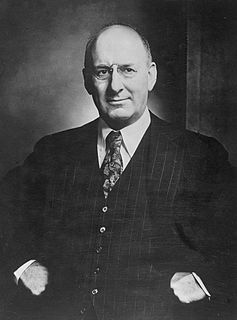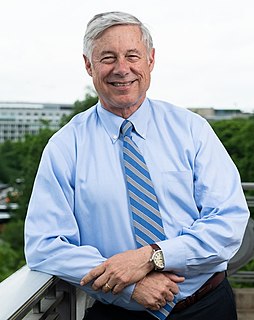Top 766 Unemployment Quotes & Sayings - Page 13
Explore popular Unemployment quotes.
Last updated on December 22, 2024.
The image of blacks usually is one of people who are suffering from hunger, unemployment, and poverty. The idea of them as agents and activists - as starting revolutions - does not exist in most people's minds. And I think it's very, very important that folks understand how much America was founded on the enslavement of blacks, and how the resistance of blacks to that enslavement has been the spark plug for so many important developments.
My main influences - I loved art. I sounds a little pretentious to say I was into art but I liked drawing. I liked music; music was my outlet from day one. I was giving you an image of Ireland being this dull, grey, massive unemployment, not much going on and the future was the dull queue or - and, for me, the window of hope was music and books. So I fell in love with sort of T-Rex and David Bowie very young. They sort of said, "Hey. You don't have to live in this north side of Dublin that's all grey and depressed. You can be a spider and go to Mars."
Less and less is the question being asked as to whether developments are taking place in a democratic and free way. Europe is in a phase in which this output is no longer sufficiently visible or tangible. Youth unemployment is still far too high, we still haven't solved our currency problem and living conditions in Europe are drifting apart. That is one reason why critics say that our Europe is based on yesteryear's model.
In 1897, troops from the greatest empire the world had ever seen marched down London’s mall for Queen Victoria’s diamond jubilee. Seventy years later, Britain had government health care, a government-owned car industry, massive government housing, and it was a shriveled high-unemployment socialist basket-case living off the dwindling cultural capital of its glorious past. In 1945, America emerged from the Second World War as the preeminent power on earth. Seventy years later . . . Let’s not go there.
Politicians like to talk about the income tax when they talk about overtaxing the rich, but the income tax is just one part of the total tax system. There are sales taxes, Medicare taxes, social security taxes, unemployment taxes, gasoline taxes, excise taxes - and when you add up all of those taxes [many of which are quite regressive], and then you look at how they affect the rich and the poor, you essentially end up with a system in which the best off 20 percent of Americans pay one percentage point more of their income than the worst off 20 percent of Americans.
There is no worse material poverty than one that does not allow for earning one’s bread and deprives one of the dignity of work. Youth unemployment, informality, and the lack of labor rights are not inevitable; they are the result of a previous social option, of an economic system that puts profit above man; if the profit is economic, to put it above humanity or above man, is the effect of a disposable culture that considers the human being in himself as a consumer good, which can be used and then discarded.
We have tried spending money. We are spending more than we have ever spent before and it does not work. And I have just one interest, and if I am wrongsomebody else can have my job. I want to see this country prosperous. I want to see people get a job. I want to see people get enough to eat. We have never made good on our promisesI say after eight years of this administration we have just as much unemployment as when we startedAnd an enormous debt to boot!
What we're talking about is the price of goods, all goods, in terms of money. That has nothing to do with unemployment, except for the fact that you get fewer goods. And when you have more money and fewer goods, the amount of dollars per good goes up. It goes up because there are fewer goods and it goes up because there is more money.
Look at how successful the domestic workers movement has been. But it's different when it's your husband hiring someone. Domestic workers quite literally say, "You need to get your house in order. You can't join this movement unless you look at yourself." And they're very forgiving, amnesty for everyone. "You haven't been paying into your nanny's unemployment insurance? That's cool, we'll teach you how to get right and go from there." What would the parallel be around sex workers? I don't know if there can be one.
We do not put enough emphasis on early childhood years. We neglect children in this society; as a society we're guilty of child neglect. If we could eliminate the vestiges of racism, if we could develop a more powerful agenda for child care, child development, and a more powerful education system, we could prevent a lot of the incapacities which in turn tend to generate structural unemployment.
But can we please stop insisting that if low-wage workers earn a little bit more, unemployment will skyrocket and the economy will collapse? There is no evidence for it. The most insidious thing about trickle-down economics is not the claim that if the rich get richer, everyone is better off. It is the claim made by those who oppose any increase in the minimum wage that if the poor get richer, that will be bad for the economy. This is nonsense.
The best solution would be better strategies for more rapid economic growth and getting people jobs and increases in income. You should simply be clear about matching problems and solutions. If the problem is someone can't find a job because they don't have the skills and they need some retraining, extending emergency unemployment isn't going to solve that. You need the job training programs or the skills bills that come out of the House and are sitting in the Senate.
Until the 1930s, the Constitution served as a major constraint on federal economic interventionism. The government's powers were understood to be just as the framers intended: few and explicitly enumerated in our founding document and its amendments. Search the Constitution as long as you like, and you will find no specific authority conveyed for the government to spend money on global-warming research, urban mass transit, food stamps, unemployment insurance, Medicaid, or countless other items in the stimulus package and, even without it, in the regular federal budget.
In the U.S., you couldn't have job creation with interest rates of 30 or 40 percent. They had a philosophy that said job creation was automatic. I wish it were true. Just a short while after hearing, from the same preachers, sermons about how globalization and opening up capital markets would bring them unprecedented growth, workers were asked to listen to sermons about "bearing pain." Wages began falling 20 to 30 percent, and unemployment went up by a factor of two, three, four, or ten.
We had the same kind of unemployment here as they had in the worst hit places in the North and you're meant to be on a cushy wicket in the South. If you go up to Newcastle, you can tell that the town's really had money, or Liverpool, you know, the northern towns have got grandeur, whereas Medway, being just a sort of garrison town and dockyard town, you don't have anything like Earl Grey Square or anything like that.
How can we vote for a bill [S.744] that our own CBO says will reduce average wages in America for 12 years, increase unemployment for 7 years, and reduce per capita GNP growth over 25 years? A bill that will admit 30 million people to permanent legal status in the next 10 years? That will dramatically increase the annual immigration flow, and will double the guest worker flow?
Inevitably, people tell me that poor folks are lazy or unintelligent, that they are somehow deserving of their poverty. However, if you begin to look at the sociological literature on poverty, a more complex picture emerges. Poverty and unemployment are part and parcel of our economic order. Without them, capitalism would cease to function effectively, and in order to continue to function, the system itself must produce poverty and an army of underemployed or unemployed people.
I think the unemployment rate for actors is pretty much the same in Sydney, London and New York. In all three cities, there are more actors than there are jobs. But I do think that there are far more acting opportunities in London and New York than in Sydney, where there are approximately seven actors that you see over and over again in every play.
Though the poorest Americans voted for Hillary Clinton, many relatively wealthy people voted for Trump and generally it's a mistake to think that economics explains Trump. The US is doing relatively well, the economy has significantly recovered since 2008, unemployment rates are low. I would say rather that his appeal to the working class was cultural: "I'll bring back the kinds of jobs your fathers had," and, by implication, the whiter, simpler post-war world when America had no real economic competition.
In the Great Depression in which I grew up and remember vividly, unemployment was over 25 percent, and over 35 percent where I lived. A grown man would work all day, 16 hours, for a dollar. I remember hundreds of people walking by, people who had come down from the North just to get warm. They would come to our house as beggars even though they might have a college education. People didn't have money. They bartered; they'd trade eggs or pigs. It was just completely different.
[What Hayek] does not see, or will not admit, [is] that a return to "free" competition means for the great mass of people a tyranny probably worse, because more irresponsible, than that of the State. The trouble with competitions is that somebody wins them. Professor Hayek denies that free capitalism necessarily leads to monopoly, but in practice that is where it has led, and since the vast majority of people would far rather have State regimentation than slumps and unemployment, the drift towards collectivism is bound to continue if popular opinion has any say in the matter.
I do know that all of the Michigan delegation worked very hard as related to the revival of the auto industry. There was really a choice between bankruptcy and liquidation. There was no one that was willing to come up not only with the cash to keep them afloat but also to serve the warranties of everyone, you and I that drive all these cars. There was no one that could have picked up those pieces other than the federal government. [The auto bailout was] bipartisan from the get-go. [Without it,] Michigan would have hit 40 percent unemployment rates.
Your earning ability is largely determined by the perception of excellence, quality, and value that others have of you and what you do. The market only pays excellent rewards for excellent performance. It pays average rewards for average performance, and it pays below average rewards or unemployment for below average performance.
Our country is the best country in the world. We are swimming in prosperity and our President is the best president in the world. We have larger apples and better cotton and faster and more beautiful machines. This makes us the greatest country in the world. Unemployment is a myth. Dissatisfaction is a fable. In preparatory school America is beautiful. It is the gem of the ocean and it is too bad. It is bad because people believe it all. Because they become indifferent. Because they marry and reproduce and vote and they know nothing.
The image of blacks usually is one of people who are suffering from hunger, unemployment, and poverty. The idea of them as agents and activists - as starting revolutions - does not exist in most people's minds. And I think it's very, very important that folks understand how much this country was founded on the enslavement of blacks, and how the resistance of blacks to that enslavement has been the spark plug for so many important developments.
One man in one mood will attack Industrial Capitalism for its destruction of beauty; another for its incompetence; another for the vileness of the men who chiefly prosper under it; another for its mere confusion and noise; another for its false values; it was until recently most fiercely attacked for its impoverishment of the workers, its margin of unemployment and the rest - indeed so fiercely that it was compelled to seek palliatives for the evil. With a mass of men it was attacked from a vague but strong sense of injustice; it allowed a few rich to exploit mankind.
Gandhi is the other person. I believe Gandhi is the only person who knew about real democracy — not democracy as the right to go and buy what you want, but democracy as the responsibility to be accountable to everyone around you. Democracy begins with freedom from hunger, freedom from unemployment, freedom from fear, and freedom from hatred. To me, those are the real freedoms on the basis of which good human societies are based.
When people are in a workplace where it's possible to organize and engage in labor actions, that's how they fight, and it can be very effective. When people are not in that situation, they fight in other ways. They fight in the marketplace. One need only notice that there's been a meaningful shift in where people are over the last thirty, or fifty years from traditional productive industries toward a kind of work that involves circulation of capital and products, and toward unemployment. People who are in that situation are unlikely to fight somewhere else.
Here's why I think the public service jobs are almost unavoidable: When we have downturns in the economy - and we will, for we haven't repealed the business cycle - unemployment will build, yet we no longer have any safety net. What are we going to do? Unless we decide to pull out all the stops and lower interest rates immediately and risk turning a recession into wild inflation, we're going to have to figure out some way of providing some more, not job security, but employment security.
Unemployment is higher in Europe than in the United States and primarily concentrated in immigrant minority populations, so people are worried about what's going to happen and if American-style ghettos are emerging in Europe. There are some of the problems there that America sees associated with the lack of economic inclusion - family breakdown, gang behavior, and racial tensions. I get the sense that in Europe they are much more concerned about these issues than in the United States.
Frequent comparative ranking can only reinforce a short-term investment perspective. It is understandably difficult to maintain a long-term view when, faced with the penalties for poor short-term performance, the long-term view may well be from the unemployment line ... Relative-performance-oriented investors really act as speculators. Rather than making sensible judgments about the attractiveness of specific stocks and bonds, they try to guess what others are going to do and then do it first.
Welcome baby it's your turn to live they're laying for you chicken pox whooping cough smallpox malaria TB heart disease cancer and so on unemployment hunger and so on train wrecks bus accidents plane crashes on-the-job injuries earthquakes floods droughts and so on heartbreak alcoholism and so on nightsticks prisons doors and so on they're laying for you the atom bomb and so on welcome baby it's your turn to live they're laying for you socialism communism and so on.
It had been held that the economic system, any capitalist system, found its equilibrium at full employment. Left to itself, it was thus that it came to rest. Idle men and idle plant were an aberration, a wholly temporary failing. Keynes showed that the modern economy could as well find its equilibrium with continuing, serious unemployment. Its perfectly normal tendency was to what economists have since come to call an underemployment equilibrium.
Mr. Vice President, the most fiscally conservative thing this government has ever done, is to invest massively in the green part of the recovery. Because those green dollars are the hardest working dollars in the history of American politics. That same dollar that is being used to cut energy bills, is also cutting global warming gas emissions, is also cutting unemployment, is also cutting poverty, through retrofits it's also raising the value of homes, is also by cleaning the air, cutting asthma rates.
Medical thinking usually sees stress as highly disturbing but isolated events such as, for example, sudden unemployment, a marriage breakup, or the death of a loved one. These major events are potent sources of stress for many, but there are chronic daily stresses in people's lives that are more insidious and more harmful in their long-term biological consequences. Internally generated stresses take their toll without in any way seeming out of the ordinary.
Rather than providing him with economic opportunity, the Act of that name seems designed to make the poor man do penance all his life for the sin of being born into a non-capital-owning family... One searches it in vain for measure designed to provide economic opportunity to the capital owner. But nobody proposes to educate, train, or rehabilitate either him or his children, even when their "unemployment" is notorious.
With QE3, we are essentially being bought out with our own money...and unemployment is being used to facilitate this process in a very clever manner. Monetary inflation is currently being offset by labor deflation. The way you avoid collapse is by printing money and stealing assets. The way you avoid inflation is with labor deflation.
The idea of a company that's earning money, not losing money, that's not, let's say 'industrially endangered,' to have just cutbacks so they can earn another $12 million or $20 million or $40 million in a year where no one's counting is really a horrible act when you think about it on every level. First of all, it's certainly not necessary. It's doing it at the worst time. It's throwing people out to a larger, what is inevitably a larger unemployment heap for frankly no good reason.
Despite all of the civil rights gains of the past several decades, when it comes to economic opportunity, African Americans and Latinos still experience far more unemployment than do whites and Asians, average wages are lower, and household wealth is lower. A smaller percentage of African Americans and Latinos attend, and complete, college, than is the case with whites and Asians, and a higher percentage end up in prison. All of these are indicators of massive disparities in opportunity, and these disparities are mirrored in poverty data.
The New Deal never rethought the draconian racist immigration restriction policies of the 20s, of course, but its electoral base rested significantly on "ethnic" voters, whose activism was both hemmed in and rewarded by the Democrats. Southern and Eastern Europeans were included as secondary leaders of the new industrial unions, and as entitled citizens qualified for social security, unemployment compensation, and fair labor standards protections, even as workers of color were largely left out of key areas of the welfare state.
If the Treasury were to fill old bottles with bank-notes, bury them at suitable depths in disused coal-mines which are then filled up to the surface with town rubbish, and leave it to private enterprise on well-tried principles of laissez-faire to dig the notes up again (the right to do so being obtained, of course, by tendering for leases of the note-bearing territory), there need be no more unemployment and, with the help of repercussions, the real income of the community, and its capital wealth, would probably become a good deal greater than it actually is.
Unemployment in the sense of distress is widely disappearing. . . . We in America today are nearer to the final triumph over poverty than ever before in the history of any land. The poor-house is vanishing from among us. We have not yet reached the goal, but given a change to go forward with the policies of the last eight years, and we shall soon with he help of God be in sight of the day when poverty will be banished from this nation. There is no guarantee against poverty equal to a job for every man. That is the primary purpose of the economic policies we advocate
I hear all the time that 'unemployment is greatly reduced, but the people aren't feeling it.' When the media, talking heads, the White House and Wall Street start reporting the truth - the percent of Americans in good jobs; jobs that are full time and real - then we will quit wondering why Americans aren't 'feeling' something that doesn't remotely reflect the reality in their lives. And we will also quit wondering what hollowed out the middle class.
When a company wants to move to Mexico or another company - or another country and they want to build a nice, beautiful factory and they want to sell their product through our border, no tax, and the people that all got fired, so we end up with unemployment and debt, and they end up with jobs and factories and all of the other things, not going to happen that way. And the way you stop it is by imposing a tax.












































